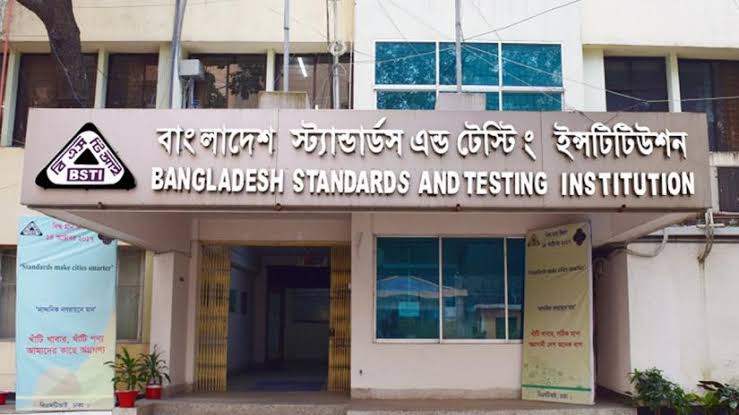SAMI
Published:2020-04-26 03:21:59 BdST
BSTI bans 17 food products
The Bangladesh Standards and Testing Institution (BSTI) on Saturday banned the sale, distribution, and storing of 17 food products and revoked their licences as they failed to meet the Bangladesh Standard.
Manufacturers, suppliers, wholesalers and retailers of these products were told to stop trading before the respective companies get new licences.The regulator also prohibited advertising these products.
The decision came after the BSTI testedproductsamples collected from markets.
According to the BSTI statement issued on Saturday, the banned products are Chattogram's Kalpana Commodities Company's AP-1 Ghee, Chittagong Flour Mills' Anchor Shuji (semolina); andlozengeof Jashore's Al-Amin Bakery and Confectionery.
The list also includes Dhaka's Mr Baker & Pastry Shop's biscuits, Faridpur's Safe Food Industry's Saba Potato Chips, Cox's Bazar's Riyadh Salt Industry's Banga Iodized Salt, Rajshahi Mistanno Vandar's RM Ghee, Bogura's Genius Safe Food and Consumer's Genius Special Ghee, soybean oil, turmeric powder, Shima Flour Mills' Shima Shuji, Gazipur's GM Food Products' AB-1 Butter Oil, Raja Ghee; Shah International Food Product's Nurjahan Butter, Shariatpur's Mother Dairy and Food Products' Best-1 Ghee, Moulvibazar's Shahi Food Products' Shamsher Nagar Shahi Ghee and one unnamed brand's loose soybean oil.
Following the issuance of quality certification for products, the BSTI conducts regular surveillance drives throughout the year to check if the companies are producing quality products and collect samples from markets and test them in its laboratory.
But the BSTI usually strengthens its market monitoring ahead of Ramadan every year by testing the quality of consumer products and conducting mobile courts to punish businesses operating in violation of product standard.
In the last two months, the BSTI surveillance teams collected different iftar and sehri related food products from markets and tested those in its laboratory to ensure the supply of unadulterated products during Ramadan and to raise public awareness.
The BSTI collected 521 food samples from across Bangladesh for testing during this period.
Testing of 253 samples has been completed so far,of which 236 were found to be standard samples, 17 substandard ones, while 268 samples are still being tested.
Unauthorized use or reproduction of The Finance Today content for commercial purposes is strictly prohibited.


